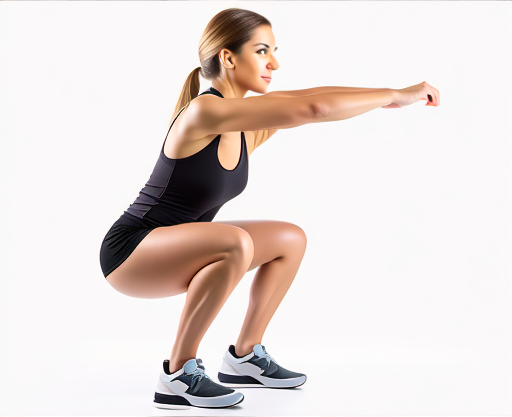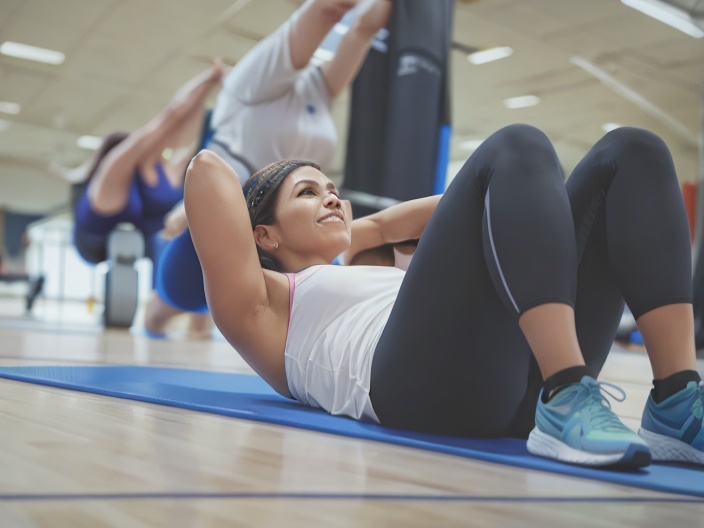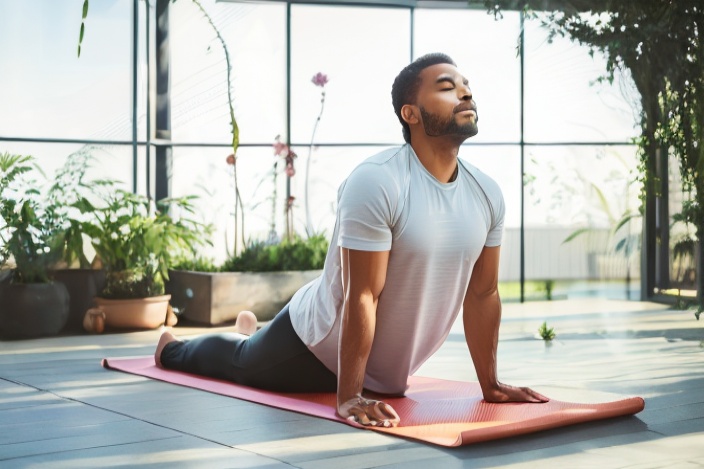Squats are a powerful strength-training exercise that engages multiple muscles in both the upper and lower body simultaneously. These muscles play a crucial role in everyday activities like walking, climbing stairs, bending, and lifting heavy objects. Additionally, squats contribute significantly to athletic performance by enhancing strength, balance, and endurance.

Incorporating squats into your fitness routine can improve your workout efficiency, reduce the risk of injury, and make daily movements easier and more comfortable. Here are 12 compelling reasons to start doing squats every day.
1 Strengthens Your Core
Strong core muscles make everyday activities like bending, twisting, and even standing much easier. A solid core improves balance, relieves lower back pressure, and supports proper posture. A 2018 study comparing core muscle activation in planks and back squats revealed that squats activate core muscles more effectively, reducing the risk of injury and enhancing athletic performance.
During a squat, your core engages to stabilize your body, ensuring balance throughout the movement. This dynamic core activation makes squats an essential exercise for core strength.
2 Reduces the Risk of Injury
Strengthening your lower body muscles through squats helps improve your overall posture, balance, and agility. Squats also fortify tendons, ligaments, and bones, reducing the risk of injuries. According to the American Council on Exercise, squats increase bone mineral density, particularly in the spine and lower body, making your skeleton more resilient.
However, proper form is essential. A 2013 study showed that shallow or poorly executed squats could contribute to lumbar spine and knee issues over time.
3 Burns Calories Efficiently
While running and cycling are popular calorie-burning exercises, squats are also highly effective.A person weighing 155 pounds can burn around 223 calories in 30 minutes.Compared to isolated exercises like the leg press, squats engage more muscle groups, leading to a greater hormonal and metabolic response, which supports fat loss and muscle gain.
4 Strengthens Lower Body Muscles
Your lower body contains some of your largest and most powerful muscles, including the glutes, quadriceps, hamstrings, and calves. These muscles are vital for everyday movements such as walking, sitting, and lifting.
When your lower body muscles are strong, everyday tasks become easier and less strenuous.
5 Enhances Athletic Performance
If you’re an athlete or play sports, squats can significantly boost your performance. Variations like jump squats build explosive power and speed. A 2016 study found that jump squat training improved sprint times and overall strength after just eight weeks.
Including squats in your training can give you an edge in sports requiring power, agility, and speed.
6 Provides Exercise Variety
Squats aren’t a one-size-fits-all exercise. Once you’ve mastered the basic squat, you can try numerous variations, including goblet squats, sumo squats, and Bulgarian split squats.

You can perform squats with body weight, dumbbells, kettlebells, or resistance bands.
7 Builds Overall Muscle Mass
Squats are not just about strong legs—they trigger muscle growth throughout your body. By creating an anabolic environment, squats promote muscle-building hormones that help develop not only your lower body but also your core and upper body.
This full-body activation makes squats one of the most efficient compound exercises available.
8 Improves Flexibility
Flexibility is a critical component of overall fitness, and squats are excellent for maintaining it. The flexibility of muscles, tendons, and ligaments decreases with age, raising the possibility of injury and stiffness.

Daily squatting stretches and strengthens the leg muscles, keeping your joints and connective tissues flexible and functional.
9 Supports Digestion and Circulation
One of the lesser-known benefits of squats is their positive impact on digestion and circulation. The movement promotes better blood flow throughout the body, delivering oxygen and nutrients to vital organs.
Improved circulation enhances the function of the small intestine, aiding digestion and overall gut health.
10 Accessible for Everyone, Anywhere
Bodyweight squats require no equipment—just your body and some open space. Whether you’re at home, at the gym, or traveling, squats can fit seamlessly into your daily routine.
Start with 25 squats in the morning and another 25 in the evening. As your strength increases, you can add more repetitions or incorporate weights.
11 Boosts Athletic Performance and Endurance
Squats are not just for building muscle—they also improve endurance and functional fitness. Athletes rely on squats to increase explosive power, speed, and balance, which are essential for performance in sports like basketball, soccer, and track events.
12 Enhances Balance and Stability
Good balance is essential for overall strength and injury prevention. Squats improve stability by strengthening the core and lower body muscles responsible for maintaining equilibrium.
This improved balance carries over to other compound exercises like deadlifts, barbell rows, and lunges, creating a solid foundation for overall strength training.
Final Thoughts
When performed correctly, squats are one of the most effective exercises for improving strength, flexibility, balance, and overall health. They burn calories, reduce injury risks, and can be done virtually anywhere.
Squats aren’t just for bodybuilders or athletes—they’re for everyone. So, whether you’re aiming to tone your legs, build core strength, or simply enhance your daily mobility, squats are a must-have in your fitness routine.
